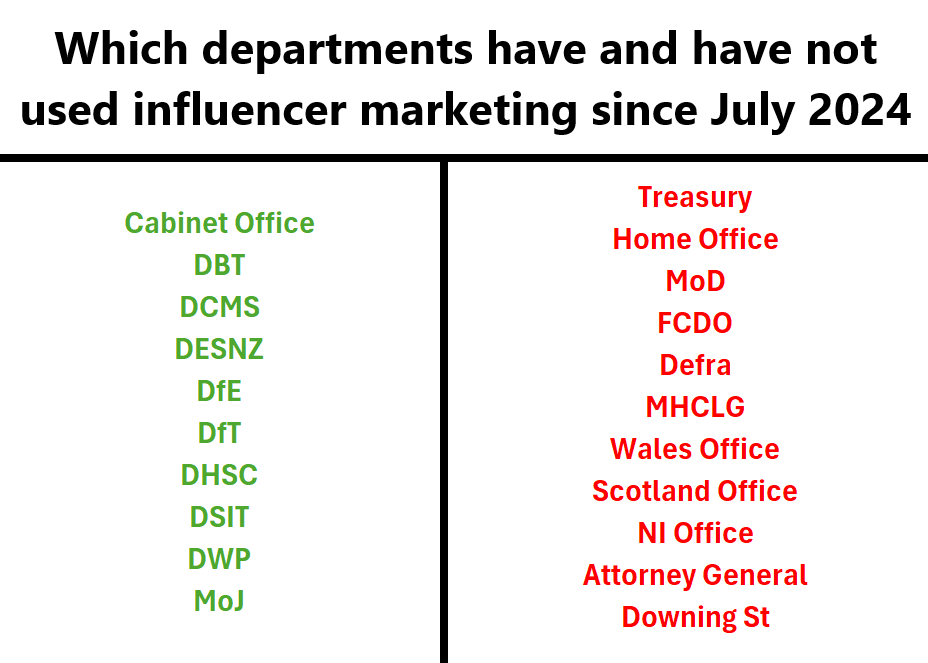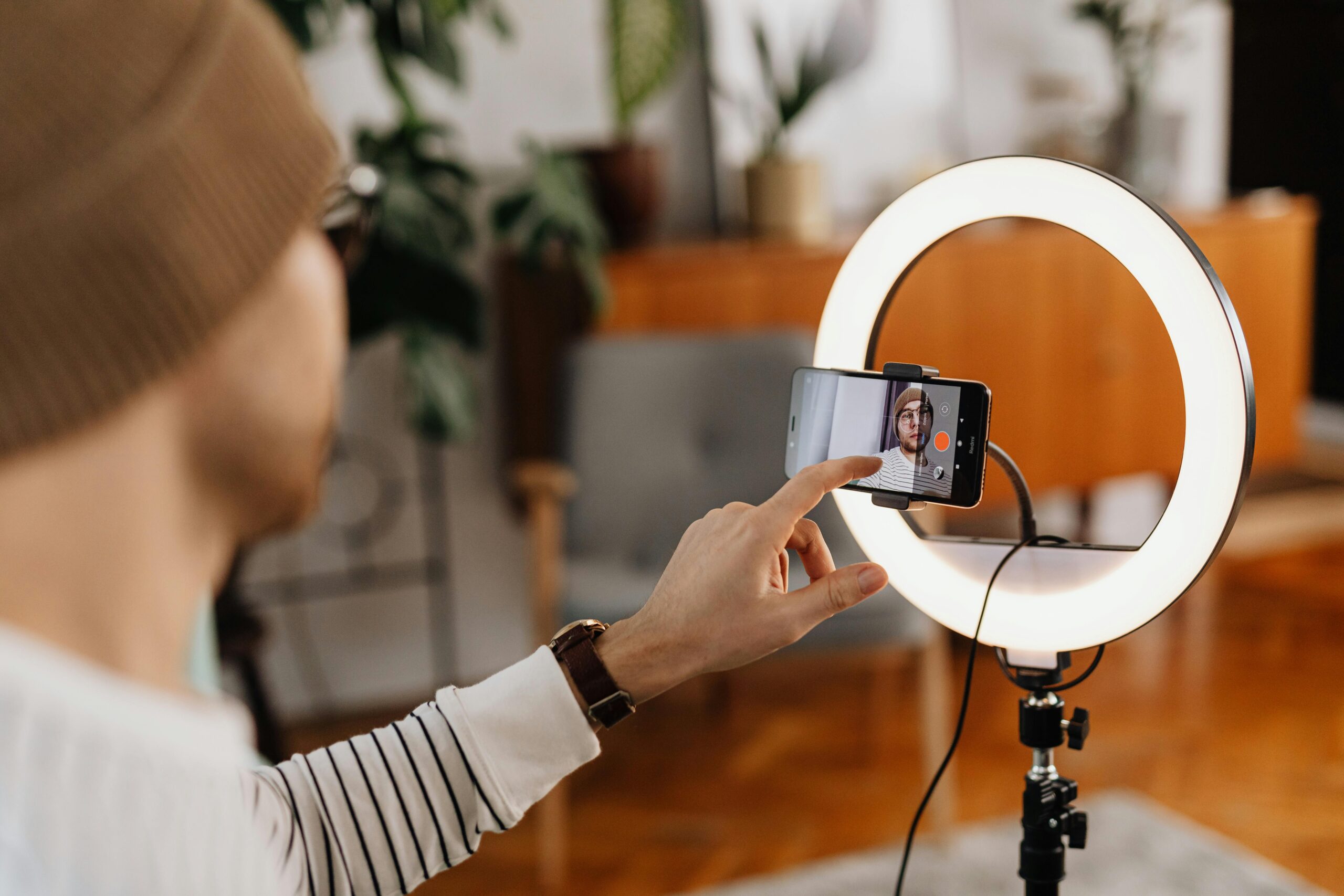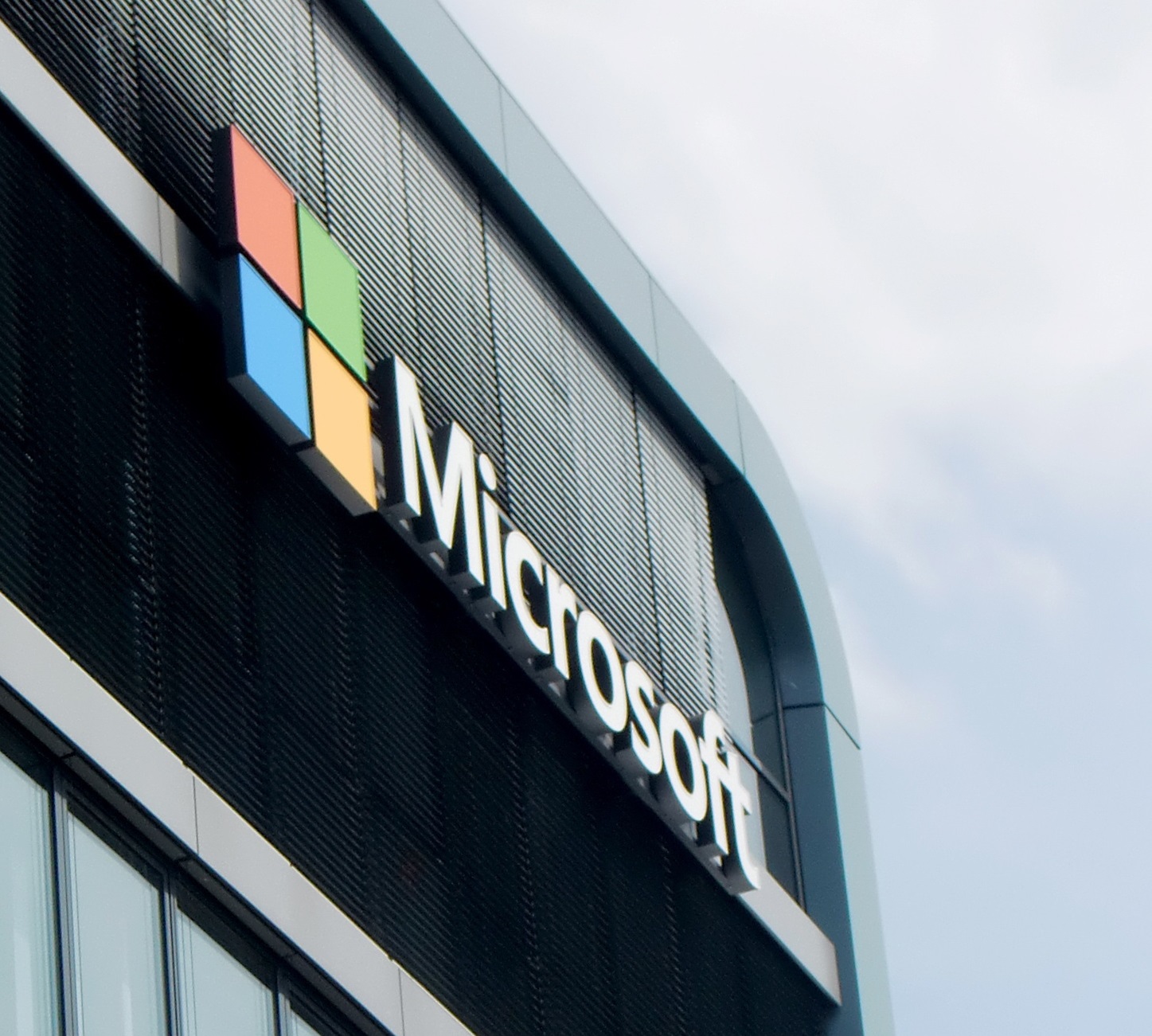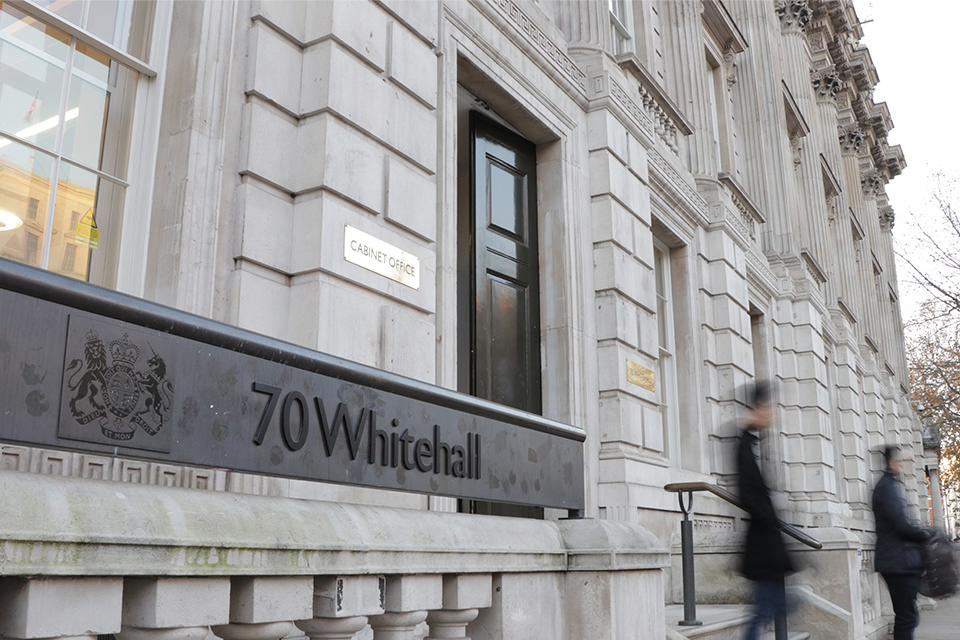Numerous departments acknowledge the use of online personalities and content creators for comms purposes but, as PublicTechnology discovers, questions remain concerning details of those involved and the cost to taxpayers
For the average member of the general public, it is likely there is a marked contrast in their respective perceptions of the serious and starchy environment of government, compared with the flashy froth of the world of online influencers.
Or, more concisely: a bit of a swag gap.
But, as social networks and digital platforms take an ever-greater share of attention – and take it away from the likes of newspapers and traditional broadcast TV and radio – government faces new challenges in delivering public information campaigns, via channels where it may lack cut-through.
It may even be absent from these channels entirely – with the use of TikTok formally prohibited on government devices, outside of certain “exceptional circumstances”, thought to include the release of urgent public-safety messages regarding the likes of civil unrest, extreme weather or terror incidents.
Understanding and responding to these exceptions is a key part of the remit of the Cabinet Office-based New Media Unit (NMU), which was created a year ago and now has almost 20 staff, and an annual messaging budget of £13.2m. The unit is intended to “reach audiences where they are most active”, according to ministers.
Since its launch, the NMU has been behind the creation of an official government Reddit account, as well as a recent Downing Street reception for around 80 online influencers.
“We are committed to modernising outdated practices across government, including making sure the public hears what their government is doing for them, no matter where they get their news.”
The role of these internet personalities in supporting government communications has been subject to significant parliamentary scrutiny in recent months. Opposition MPs have filed many questions seeking to find out the identity of influencers used to deliver public messaging campaigns, as well information on costs and operational details – with decidedly mixed results.
While a handful of agencies have provided information on money spent to support influencer marketing, numerous departments have declined to do so, and none has been willing to name individuals engaged in state-backed messaging – despite a ministerial acknowledgement that “it is obvious [when a post] is an advert paid for by the UK government or part of a government campaign”.
A recent series of written questions, submitted by Conservative MP Sir John Hayes, reveals that seven departments indicated that they had spent some money on influencer marketing since the 2024 general election but, when pressed, would not provide any information on costs – either overall or per-influencer – citing “commercial sensitivities”.
These departments are: the Cabinet Office; the Department for Culture, Media and Sport; the Department for Education; the Department for Energy Security and Net Zero; the Department of Health and Social Care; the Department for Transport; and the Ministry of Justice.
Alongside this septet, there are three departments for which the supposed “commercial sensitivities” seemingly do not apply.
This includes the Department for Science, Innovation and Technology, which was happy to acknowledge £490 dedicated over the past 16 months to spreading its messages via online figures.

But there were also two Whitehall agencies – the Department for Business and Trade and the Department for Work and Pensions – which, when asked, provided details of much more significant levels of spending on influencer marketing.
Since summer 2024, the departments have respectively spent £39,700 and £120,003.
And, despite claiming that commercial sensitivities meant that it could not provide a departmental spending figure, the Cabinet Office did answer a query concerning money that the NMU has invested in influencer campaigns. Since its creation, the unit has spent just under £115,000 in this area, its parent department said.
‘Modernising outdated practices’
Despite the increasingly widespread use of online personalities for government campaigns, there are still a number of major departments that still make no use of influencers, recent ministerial responses indicate.
Eleven agencies indicated that they have not spent any money on influencer marketing since July 2024, including: HM Treasury; the Home Office; the Foreign, Commonwealth and Development Office; the Department for Environment, Food and Rural Affairs; and the Ministry of Housing, Communities and Local Government.
The Wales, Scotland and Northern Ireland Offices have also not used influencer marketing, nor has the Attorney General’s Office. And, despite Keir Starmer’s recent Downing Street shindig with TikTok’s finest, the Prime Minister’s Office has not directly spent any money via influencers, according to parliamentary disclosures.
The Ministry of Defence said that it could not provide “a full departmental response [as this] could only be provided at disproportionate cost”, but did say that “the Directorate of Defence Communications, as the lead department for communications, has not had any spend for promotion through social media influencers since July 2024”.
PublicTechnology contacted government requesting comment on the growing use of influencer marketing – and on the disparity between the opacity of departments’ activities, in terms of disclosing costs and details of people involved.
In response, a government spokesperson said: “We are committed to modernising outdated practices across government, including making sure the public hears what their government is doing for them, no matter where they get their news. That means working more closely with creators and influencers to tell our story alongside traditional media. This is innovation, and it is a good thing.”
Top lads
In their answers to MPs’ questions, several departments also commented on the benefits of spreading their message to the followers of popular online accounts, including citing some specific recent campaigns.
Earlier this year the DfT worked with digital publishing group LADbible, which supported the department’s long-standing THINK! road-safety campaign. The initiative was “amongst the first campaigns to trial advertising on TikTok as part of a government pilot”, according to comments made in March by local transport minister Lilian Greenwood.
Several months later, the then aviation and maritime minister Mike Kane added: “As part of the THINK! campaign to reduce speeding among young men, the department ran a media partnership with youth platform LADbible which involved working with two content creators as part of a wider partnership.”
£120,003
Amount spent by the DWP on influencer marketing since July 2024
7/10
Proportion of departments that acknowledged use of influencer marketing but would not provide information on spending amounts
Six
Number of TikTok and Instagram influencers used by DBT to support campaign about National Minimum and Living Wage
November 2024
Date of creation of New Media Unit, which has a remit to use new comms channels for government campaigns, including social media influencers
The Department for Business and Trade, meanwhile, worked with “six digital influencers” on TikTok and Instragram to support a campaign to spread awareness of the National Minimum and Living Wage. While the DBT would not provide an overall spending figure, it did reveal that 3% of the campaign’s total budget was committed to influencer activities.
In July, the then employment rights minister Justin Madders said: “Influencer marketing is a credible paid communications channel, which is considered for government advertising campaigns and can be an effective way in reaching audiences that the government and traditional marketing channels find hard to reach. We used this channel to raise awareness of the new National Minimum and Living Wage rates to ensure audiences such as young people, part-time female workers, ethnic minorities and disabled groups are paid correctly.”
The MoJ – which declined to quantify its spending on influencer marketing – has seen the benefits of new communications channels, particularly in supporting hiring people in key frontline roles, according to victims minister Alex Davies-Jones.
“The Ministry of Justice uses social media, influencers and online advertising to support the department in delivering its key priorities,” she said in September. “These priorities include our recruitment campaigns for prison officers, probation officers and magistrates which help to ensure our front-line services are safely resourced and able to deliver swift access to justice as well as our campaigns that support victims of crime access the support they need. Commercial sensitivities exist around aspects of this spend which could prejudice commercial interests. All spend in these areas are subject to the standard value-for-money assessments.”




